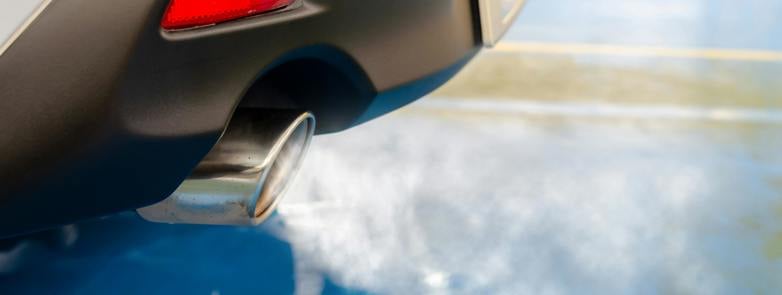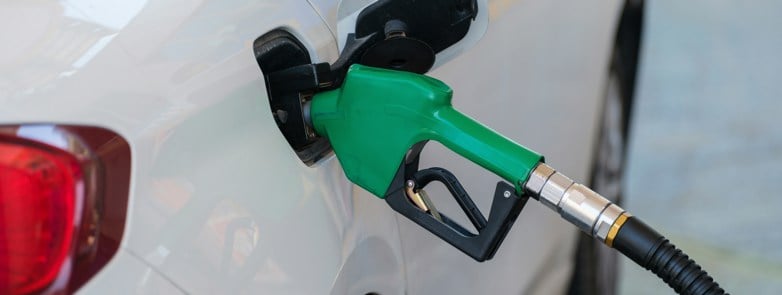What You Need to Know Before Leasing a Diesel or Petrol Vehicle
Whether you're a first-time leaser or looking to renew your current lease, understanding the key differences between diesel and petrol engines - particularly in emission control technologies - is crucial.
In this guide, we will delve into the specifics of Diesel Particulate Filters (DPF), Diesel Exhaust Fluid (DEF) systems, and Gasoline Particulate Filters (GPF) to equip you with the essential knowledge about these technologies. This guide covers:
- What is a Diesel Particulate Filter (DPF)?
- What happens if the DPF does not regenerate?
- What is a Diesel Exhaust Fluid (DEF) system?
- What will happen if the AdBlue tank is not refilled when advised?
- What is a Gasoline Particulate Filter?
- What happens if the GPF does not regenerate?
- Choosing the right vehicle for your needs
By the end of this guide, you'll have a clearer understanding of which vehicle type best suits your needs and how to manage the lease car maintenance responsibilities that come with different emission systems, ensuring you make an informed decision on your next vehicle lease.

To meet strict European emissions legislation, most modern Internal Combustion Engine (ICE) vehicles are fitted with a particulate filter to help mitigate emissions. Depending on the fuel type of the vehicle, these are typically:
- Diesel Particulate Filters (DPF)
- Diesel Exhaust Fluid (DEF)
- Gasoline Particulate Filter (GPF)
These systems are designed to significantly reduce harmful emissions before they can be released into the atmosphere, preventing respiratory problems if people are exposed to high concentrations over time - especially in large towns and cities.
To achieve Euro 6 regulations, most manufacturers now incorporate this technology into their vehicles.
A Diesel Particulate Filter (DPF) is a device installed in diesel vehicles to capture and store soot particles from exhaust emissions during combustion. While the DPF can hold a certain amount of soot, when it becomes full, it undergoes a cleaning process called "regeneration."
Regeneration is crucial for the proper functioning of the vehicle and the longevity of the DPF. It occurs when the filter reaches a high temperature sufficient to convert the trapped soot into a smaller amount of ash. For the DPF to regenerate automatically, the vehicle must be driven at sufficient speed to ensure a high enough exhaust gas temperature is reached. Typically, a vehicle must be driven at 50mph or above for at least 20 minutes to effect this process.
If the Diesel Particulate Filter cannot automatically regenerate, it can lead to an excessive buildup of soot. This buildup can significantly reduce the vehicle's performance and may potentially cause damage to the filter.
When the DPF becomes full, a warning light will activate on the dashboard to alert the driver. To resolve this, the DPF needs to regenerate, which typically involves driving the vehicle at speeds of 50 mph or above for a minimum of 20 minutes. This allows the filter to clear itself of soot and turn off the warning light. If it's not possible to drive at high speeds due to traffic conditions or speed limits, the vehicle must be taken to a franchised dealer for a process known as forced regeneration.
Ignoring the DPF warning light can lead to severe damage to the vehicle, which is not covered by the manufacturer's warranty or maintenance agreement. Replacing a DPF can be costly, with prices up to £1,500 or more, depending on the vehicle brand.
Please note that it is the driver's responsibility to ensure the vehicle is driven in a manner that supports automatic regeneration. If issues arise that require forced regeneration, you may be liable for any associated costs. As such, regular maintenance checks by a professional service provider are recommended to prevent severe DPF issues.
“To allow the DPF filter to automatically regenerate, a vehicle must be driven at 50mph or above for at least 20 minutes to effect this process.”

Most modern diesel vehicles have Diesel Particulate Filters that must undergo a regeneration cycle to function properly. This typically involves driving the vehicle at sufficient speeds to activate the cycle. However, not all DPF systems require this method. Other regeneration methods include:
- Built-in Heating Systems: Some DPFs have integrated heaters that warm up the filter directly, allowing for regeneration without the need for high-speed driving.
- Fuel Injection Systems: Others feature a mechanism where fuel is injected into the DPF, which burns off the soot at increased temperatures, facilitating the regeneration process.
To determine the specific type of DPF system installed in your vehicle, you can refer to the manufacturer's website or consult the vehicle's handbook. This information will help you understand how your vehicle's DPF manages soot and what steps you may need to take to assist in its regeneration.
Choosing the right type of vehicle depends significantly on your typical driving environment and habits. Diesel vehicles are equipped with Diesel Particulate Filters that need regular regeneration to function properly, which can be influenced by how and where you drive.
If your driving is mostly in town or urban areas, your DPF may fill up with soot more quickly due to lower driving speeds and frequent stopping. To regenerate the DPF, you would need to drive at higher speeds, typically 50 mph or above, for at least 20 minutes. If this doesn't fit with your usual driving patterns, other vehicle types might be more suitable.
By assessing your regular driving conditions and understanding the maintenance needs of diesel vehicles, you can make a more informed decision about which vehicle type aligns best with your lifestyle.
Diesel Exhaust Fluid (DEF) systems are designed to reduce harmful nitrogen oxide emissions from diesel engines by turning them into harmless nitrogen. This system uses a high-purity urea solution known as AdBlue, which is injected into the exhaust system just before the catalytic converter.
If your vehicle is fitted with DEF technology, it is essential to keep the AdBlue fluid topped up according to the manufacturer's guidelines. The vehicle will alert you when levels are low. If the AdBlue level is too low, the vehicle will enter a reduced power state, often called "limp mode," to prevent damage from excessive emissions.
On average, AdBlue fluid is used at about 5 litres per 100 litres of diesel. This helps reduce nitrogen oxide emissions by over 90%. Most manufacturers have chosen AdBlue technology to comply with Euro 6 emissions legislation.
The AdBlue tank is typically refilled during your vehicle's regular service; however, the need for additional top-ups between services can vary due to several factors. The size of the AdBlue tank differs across vehicle models, which influences how often refills are needed. Your vehicle's dashboard will warn when AdBlue levels are low, signalling that a top-up is necessary.
The rate at which AdBlue is consumed is also affected by several factors, including the amount of mileage covered, the types of journeys undertaken (frequent short trips use AdBlue more quickly than longer journeys), your driving style, and environmental conditions such as extreme temperatures and varied road conditions.
The location of the AdBlue tank varies by vehicle model. The filler cap is commonly situated next to the fuel filler, but it can also be found under the rear floor in the boot. In some vans, it may be located within the engine bay. To determine the exact position of the AdBlue tank in your vehicle, please refer to the vehicle's handbook.
When topping up AdBlue, it's essential to wear protective clothing like rubber gloves and safety glasses, as AdBlue fluid can damage various surfaces, including vehicle parts, plastics, and clothing.
AdBlue fluid is readily available at most franchised dealers, fuel stations, and online. It can also be bought from high street motor retailers such as Unipart or Halfords.
If a driver fails to respond to the dashboard warnings to refill the AdBlue tank, eventually, the vehicle will fail to start. It is important to top up the AdBlue fluid before the low-level warning light comes on and the vehicle goes into "limp mode," as running with insufficient AdBlue can cause the vehicle to fail its MOT, as it will not meet the required emissions standards.
Please note that it is the driver's responsibility to ensure the AdBlue tank is refilled as needed and respond promptly to any low-level warnings indicated on the dashboard. If warnings are ignored, you may be liable for any associated costs. As such, regular maintenance checks should include verifying AdBlue levels to avoid these critical issues.
When considering a diesel vehicle, it's important to evaluate how the integrated Diesel Exhaust Fluid (DEF) system, commonly using AdBlue, aligns with your driving habits.
If you frequently make short trips in urban areas, the DEF system may not activate as effectively, and you may need to top-up the AdBlue solution more frequently. A diesel vehicle with DEF can still be effective for drivers whose routes include a combination of city and motorway travel. If this doesn't fit with your usual driving patterns, other vehicle types might be
more suitable.
Understanding the operational requirements of the DEF system is essential. By evaluating how often you drive at the speeds needed, you can make a more informed decision about whether a diesel vehicle is right for your lifestyle.

Gasoline Particulate Filters (GPF) are based on Diesel Particulate Filter (DPF) technology and have been developed to control particulate emissions from gasoline direct injection (GDI) engines.
Petrol-engine cars have faced particulate emissions limits since the introduction of the EU5 standard in 2009. These limits became even stricter with the implementation of the EU6c legislation in September 2018, which reduced permissible limits tenfold. This update lowered the nitrogen oxide (NOx) emissions limit for new petrol cars to 60mg/km, below the 80mg/km limit for diesels, aiming to virtually eliminate harmful particulates from exhaust emissions, including very small nanoparticles.
With emissions regulations becoming increasingly stringent, more petrol cars are being equipped with GPFs. These filters are installed in the exhaust system and have proven highly effective, capable of reducing particulate emissions by up to 95% in some models. They are essential for meeting contemporary emissions standards and helping reduce the environmental impact of petrol vehicles.
Petrol Particulate Filters (GPFs) employ systems similar to the three-way catalytic converter. In most cars, exhaust gases pass through the GPF after exiting the engine and before reaching the exhaust pipe. The GPF is typically positioned just behind the engine, near the turbocharger, which helps it heat up quickly—a crucial factor since it needs to be hot to function effectively.
Unlike Diesel Particulate Filters (DPFs), GPFs generally do not require regular high-speed driving to initiate regeneration and prevent soot buildup. This is because petrol engines naturally heat up faster and operate at higher temperatures than diesel engines, allowing the GPF to burn off soot more efficiently.
Additionally, the vehicle's electronic control units (ECUs) monitor soot levels in the filter. If needed, they automatically adjust the exhaust gas temperature to burn off soot while the vehicle is driven, thereby maintaining the filter's effectiveness without the need for manual intervention.
While Gasoline Particulate Filters (GPFs) are generally low maintenance, there are conditions under which they might not regenerate properly. Specifically, frequent slow driving in urban traffic or short journeys may prevent the GPF from reaching the temperatures needed to burn off soot, potentially leading to soot buildup. In such cases, the GPF may require forced regeneration, which would need to be conducted at a dealership.
It is important for drivers to understand their role in maintaining the efficiency of the GPF. Regular driving practices should include conditions that allow the GPF to regenerate naturally. If forced regeneration is needed, this would typically involve dealership support, and you may be liable for any associated costs. Drivers should consult their vehicle's manufacturer data to understand the specific requirements of their GPF and assess whether their typical driving patterns are suitable for maintaining a GPF effectively.
When considering whether a petrol vehicle with a Gasoline Particulate Filter (GPF) suits your needs, it's important to assess your typical driving patterns.
A petrol vehicle with a GPF could be an excellent choice if your daily driving involves frequent highway travel or longer distances where the engine can adequately heat up. However, if you predominantly drive short distances or in stop-start urban traffic, the GPF may not consistently reach the temperatures needed for natural regeneration. In such cases, you might have to consider additional maintenance or alternatively look at other vehicle types that require less specific conditions to maintain their emission systems, such as hybrid or electric vehicles.
Selecting the ideal vehicle involves more than just preference and aesthetics; it requires a thoughtful analysis of your driving habits and how they align with the capabilities and maintenance needs of different types of vehicles. Here's how you can determine the best fit for your lifestyle:
- Urban Driving: If you spend most of your time navigating city streets and dealing with stop-and-go traffic, consider a vehicle that excels in fuel efficiency and has lower emissions. Hybrid and electric vehicles are particularly suitable for urban areas as they can significantly reduce or even eliminate emissions during city driving and are less dependent on combustion processes that are optimal at higher speeds.
- Motorway and Rural Driving: For those who regularly drive long distances or at higher speeds, a diesel or petrol vehicle might be more appropriate. Diesel vehicles equipped with Diesel Particulate Filters (DPFs) and Diesel Exhaust Fluid (DEF) systems are particularly efficient for long-distance highway travel due to their fuel economy and the natural regeneration of filters at high speeds.
- Short Commutes and Infrequent Use: Vehicles that are only used for short, infrequent trips need to be easy to maintain and operate efficiently even from a cold start. Petrol cars or smaller electric vehicles might be ideal, especially those without complex emission control systems.
- Regular Long-Distance Travel: For regular long commutes, consider vehicles with good highway fuel efficiency and comfort. Here, larger petrol or diesel engines can provide the power and efficiency needed for prolonged high-speed travel.
- Petrol Vehicles: Best for drivers who value quicker starts and less frequent maintenance tasks related to emission control systems. They are also typically quieter and smoother.
- Diesel Vehicles: Ideal for those who travel longer distances and can benefit from better fuel economy and torque. However, they require careful maintenance of emission systems.
- Electric Vehicles: Suitable for environmentally conscious drivers and those with access to charging infrastructure, offering low operational costs and zero tailpipe emissions.
- Hybrid Vehicles: Provide a balance of petrol and electric power, offering fuel efficiency with reduced emissions, suitable for a mix of urban and highway driving.
Every vehicle type comes with its own set of maintenance needs. Diesel engines, for instance, require careful management of their particulate filters and exhaust fluid levels. Petrol vehicles with Gasoline Particulate Filters (GPFs) might require less frequent maintenance under the right driving conditions. Electric vehicles, while typically lower in maintenance, require consideration of battery life and charging infrastructure.
By carefully considering these factors, you can choose a vehicle that not only suits your driving needs but also aligns with your budget and lifestyle requirements.
Whether you're leaning towards a diesel, petrol, or even exploring hybrid options, choosing the right vehicle for your lifestyle and budget is crucial. At Nationwide Vehicle Contracts, we're committed to helping you find the perfect car lease deal tailored to your needs.
Check out our latest deals and find the ideal vehicle to suit your needs and preferences. We also offer various car leasing services, such as Used Car Leasing and In-Stock Car Leasing, for delivery usually within three to six weeks.
Unsure of what's best for you? Speak to one of our leasing specialists, who can guide you based on your driving habits, budget, and preferences.
Guide Information
Originally published: 14th December 2016
Last updated: 14th May 2024
